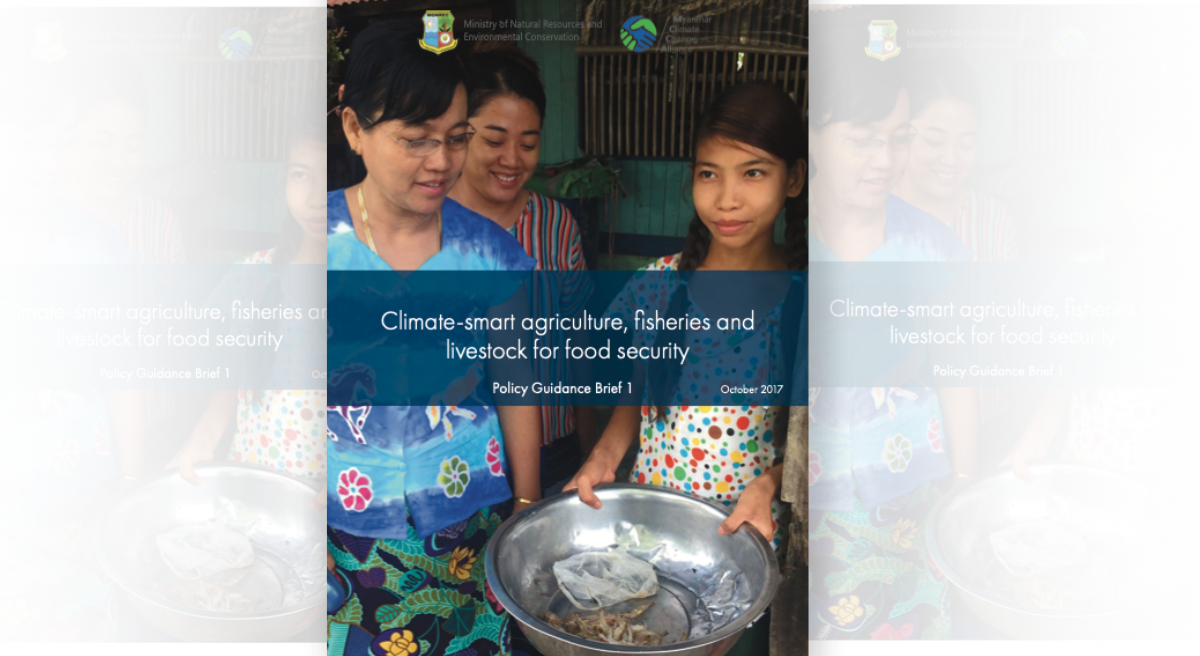Policy Guidance Brief 1: Climate-smart Agriculture, Fisheries and Livestock for Food Security, 2017 (Myanmar)
The Guidance Brief is a tool to effectively address climate change in Myanmar by aiding the understanding of key sectoral challenges, strategic objectives and specific actions. Climate change has already challenged the agriculture sector in Myanmar by affecting rice yields and livestock production, while disasters such as floods and cyclones have caused massive destruction in rural areas. Without adaptation, the long-term consequences of climate change will likely include reduced productivity and huge economic losses, food insecurity, poverty and migration. There is an urgent need of further action to promote sustainable agriculture. This requires adapting crop varieties and corresponding farming practices, improving water management especially in rice production, reducing greenhouse gas emissions from rice and livestock farming, promoting integrated farming systems and enhancing the capacity of farmers to respond to climate risks. The expected results of implementation are: (i) integrated climate change into relevant policies, planning and budgeting procedures and have put these into practice, taking into account gender considerations; (ii) adopted climate-resilient and environmentally sound adaptation technologies and climate-smart management practices, supported by international and domestic finance; and (iii) established institutional coordination and multi-stakeholder engagement framework.
